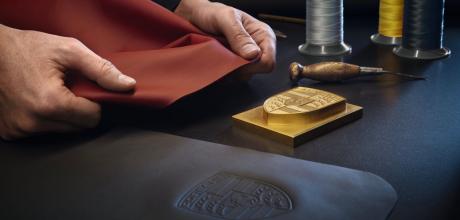Porsche committed to more sustainable leather sourcing
Leather Working Group (LWG), based in the English city of Milton Keynes, is a non-profit organisation with around two thousand stakeholders. It advocates transparency and universal environmental and social standards in the global leather supply chain. It also offers certification for leather manufacturers. Indeed, more than a quarter of the world’s finished leather production stems from LWG-certified manufacturers. These stakeholders come from all sectors of the leather value chain, whether producers, suppliers, brands or associations.
“Leather is a mark of quality for Porsche customers,” says Barbara Frenkel, Executive Board Member for Procurement at Porsche AG. “Together with our suppliers, we are committed to internationally accepted standards. The facilities in which our leather is manufactured is therefore important. They should receive certification from LWG,” she said. Dirk Grosse-Loheide, Member of the Extended Executive Committee and Board Member for Procurement on the Volkswagen Board of Management echoed Frenkels statement. “The Volkswagen Group is taking responsibility for sustainable and transparent supply chains. The accession of Porsche and the brands of the Volkswagen Group to LWG is an important step. The organisation’s expertise helps us become even more sustainable in our use of leather.”
AUDITED BY EXTERNAL INVESTIGATORS AGAINST A LEATHER-SPECIFIC SUSTAINABILITY STANDARD
Porsche’s commitment to LWG is an expression of its ambition to shape a more sustainable and transparent supply chain. Together with the wider Volkswagen Group, the Stuttgart brand has analysed sixteen raw materials, including leather. As a result, at the beginning of 2022, Porsche created material-specific criteria for the leather used in its products. These qualifications have been mandatory for all new contract awards for leather suppliers since April 2022. Among other demands, these commercial partners must disclose the country of origin of the raw material and be audited by external investigators against a leather-specific sustainability standard, such as that offered by LWG. Porsche thus obliges its suppliers to respect animal welfare and ensure responsible production and processing of leather. To this end, there are strict rules regarding water consumption during production. Suppliers must also prevent water contamination during the tanning process.
“With supply chain traceability, companies can ensure they are sourcing leather responsibly. This is at the heart of our efforts,” says Head of LWG, Christina Trautmann, who was responsible for managing Adidas’ leather portfolio in the sportswear giant’s Footwear Material Sourcing team in Hong Kong. She holds a B.Sc (Hons) in Chemical Engineering and an M.Sc in Sustainable Energy Engineering from the University of Cape Town, South Africa. “We look forward to the active participation of Porsche and the brands of the Volkswagen Group. With their support, we want to advance the development of tools and methods capable of positively influencing the leather industry.” Volkswagen Group provides an annual report on its progress in avoiding sustainability risks. Hop online and visit volkswagen-newsroom.com.


